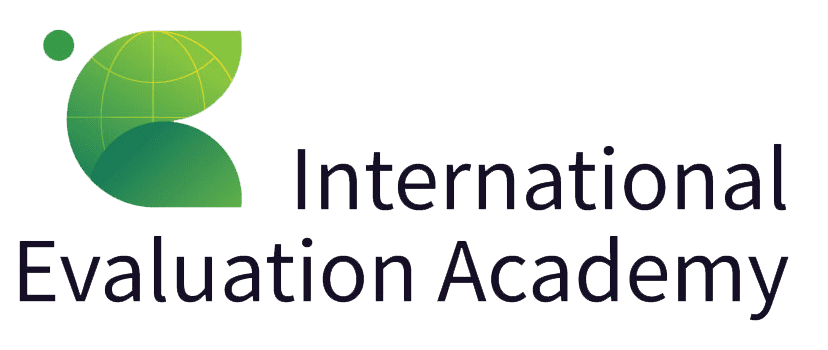Board Members

Ahmed Ag Aboubacrine
Ahmed Ag Aboubacrine is a seasoned development evaluator and results management specialist with over 23 years of experience across Africa, Asia, MENA, and North America. Since February 2025, he has served as the Director of the Regional Hub of the IsDB Group for North Africa, covering Algeria, Mauritania, Morocco, Libya, and Tunisia. Previously, he held leadership roles at IsDB, including Acting Director of the Independent Evaluation Department and Principal Executive Assistant to the President for Corporate Affairs. With extensive expertise in designing, accountability, and learning systems in both public and private sectors, he has advised senior management and country teams on corporate strategy, quality assurance, and performance management. Trilingual and with a strong academic background in mathematics, statistics, and decision-making, he has been recognized as an AILA International Fellow by CSIS and is certified in Fundraising Management by Indiana University. He is an active member of several scientific societies and philanthropic organizations, including IDEAS, AfrEA, AEA, and IEAc.
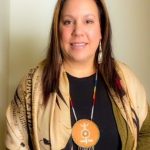
Nicole Bowman
Nicole (Nicky) Bowman/Waapalaneexkweew (Lunaape/Mohican), PhD, is a traditional Ndulunaapeewi Kwe (Lunaape Woman) and a traditional community member and citizen of the Stockbridge-Munsee Band of the Mohican Nation in Wisconsin, USA (www.mohican.com). She is a curious, creative, and courageous innovator whose academic lodge sits at the place where traditional knowledge and Tribal sovereignty intersect with evaluation, policy and research.
As the President/Leader/Founder of the nationally award-winning Bowman Performance Consulting (BPC) in Shawano, Wisconsin, Dr. Bowman has delivered nearly three decades of culturally responsive and multi-jurisdictional evaluation, research, training, and technical assistance services on local and global initiatives, thought leadership and academic studies. BPC intentionally sets out to be a humble academic and cultural partner to work WITH people and communities, not ON them.
Dr. Bowman is also an Associate Scientist with the University of Wisconsin-Madison, in the Wisconsin Center for Education Research (WCER). She proudly and effectively works with BIPOC and allies in the Wisconsin Evaluation Collaborative in the WEC Center.

Bagele Chilisa
Bagele Chilisa is a full Professor of the Post Graduate Research and Evaluation Program at the University of Botswana. She has a doctoral degree in Policy Planning and Evaluation from the University of Pittsburgh in the USA. She served as a Meta evaluator for the Netherlands WOTRO Science for Global Development Joint MFS 11 Evaluations of Development Interventions (2012-2015) and for the African Development Bank Evaluation of the African Development Bank Assistance to Botswana 2004-2013. She has also served as an evaluator for the South African National Research Foundation, evaluating the Indigenous Knowledge Systems Programme. She is the author of the African Evaluation Association (AFrEA) concept paper on a Made in Africa Evaluation Approach and an African thought leader driving the concept of African-rooted evaluation. She has conducted evaluation research for DFID, FAWE, UNICEF, UNDP, WHO, UNESCO, Economic Commission for Africa, World Bank and ILO. She has also facilitated evaluation workshops for CLEAR (Centre for Learning on Evaluation and Results), IPDET (International Program for Development Evaluation Training) and AFrEA (African Evaluation Association). She is the founding member of the Botswana Evaluation Society and currently its chairperson. She is a member of the UNDP (United Nations Development Programme) Evaluation Advisory Panel. Her work has focused on culturally and contextually responsive evaluation. Second edition of her publications: Indigenous Research Methodologies include two chapters on evaluation. Other publications include Mixed Methods in Indigenous Research: Building Relationships for Sustainable Intervention Outcomes (2014); Decolonising Trans-disciplinary Research: An African Perspective for enhancing knowledge integration in Sustainability Science (2017); Community Engagement with a post-colonial, African based relational paradigm (2017); and Decolonizing and Indigenizing Evaluation Practice in Africa: Toward African Relational Evaluation Approaches (2016).
Gonzalo Hernández Licona
Gonzalo Hernández Licona is now the Director of the Multidimensional Poverty Peer Network (MPPN-OPHI), where he coordinates 61 countries and 19 international institutions to advance and exchange ideas about implementing multidimensional poverty indicators. He is also an expert for Country-Led evaluations working for UNICEF, the Global Evaluation Initiative (GEI) and the UN. He is Senior Research Fellow at the International Initiative for Impact Evaluation (3ie); Research Associate at Oxford Poverty and Human Development Initiative (OPHI); Member of the Advisory Evaluation Panel at IFAD; Member of the Board of Trustees at El Colegio de México. He was the Executive Secretary of the National Council for the Evaluation of Social Policy (CONEVAL) between 2005 and 2019, where he coordinated the evaluation of the social and the measurement of poverty at the national, state and municipality level. From 2000 to 2005 he was the General Director of Monitoring and Evaluation at the Ministry of Social Development. Between 1991 and 2002 he was a full-time professor at the Instituto Tecnológico Autónomo de México (ITAM); he is still a part-time professor at ITAM. He also was part of the 15 Independent Group of Scientists who wrote the 2019 Global Sustainable Development Report for the United Nations. Gonzalo has a Ph. D. in Economics from the University of Oxford; M. A. in Economics from the University of Essex and a B. A. from ITAM.

Khadija Khan
Khadija Khan is a development evaluator, a results-based management practitioner and an advocate of human rights. She has a masters’ degree in Economics from the University of Punjab, Lahore, Pakistan and a masters’ degree in Human Rights from Vienna University, Vienna, Austria. Khadija has served in various executive positions at national and international/UN organisations addressing some critical socio-economic issues faced by the world e.g. child labour, poverty, peaceful use of nuclear energy, and disaster management. Having completed her last assignment in 12/2015 as Quality Management Specialist in the Technical Cooperation Department, International Atomic Energy Agency (IAEA), she initiated empirical research in Pakistan focussed on Public Health and Cancer Control and as a result published two studies in collaboration with colleagues in medical profession. Her specialisation in development evaluation and continued interest to build the discipline, gave her the opportunity to serve as Member Board and Secretary of International Development Evaluation Association (IDEAS) during 2006-2009. She is also a lifelong president of Pakistan Evaluation Network (PEN) which she established in 2004. She has membership of the Society for Risk Analysis (SRA) in USA and Europe. Khadija has to her credit both published and unpublished work including 3 books and a number of research papers and studies, mostly placed at Research Gate for public use. She is currently working as an independent consultant and is based in Vienna, Austria. She is married and has a son and three wonderful granddaughters.
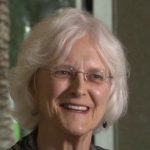
Beverly Parsons
Beverly Parsons is committed to fostering health and well-being for people and planet as evidenced in the recent book, Visionary Evaluation for a Sustainable, Equitable Future (2020, Information Age Publishing). She is the book’s lead editor as well as co-author of several chapters. The book’s title matches the theme of the 2014 American Evaluation Association (AEA) conference, the year she was president of AEA. She has worked closely with governors, legislators, local communities, philanthropy, universities, and businesses across sectors in support of environmental sustainability, social justice, economic well-being, and community development. Her PhD in educational research and evaluation (University of Colorado-Boulder) grounds a career of compassionately using mixed evaluation, research, and facilitation strategies to reveal ways to influence complex systems in support of learning, equity, and sustainability. Her background in medicine and science (BS in medical technology, instructor of physiological chemistry, University of Wisconsin-Madison) has strengthened her interdisciplinary interests and focus. Beverly is executive director of InSites (www.insites.org). InSites works through system-oriented evaluation, research, and strategy.
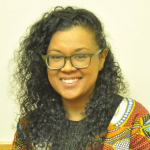
Candice Morkel
Candice Morkel (PhD) is the Director of CLEAR Anglophone Africa and senior lecturer in Monitoring and Evaluation at Wits University (South Africa). She has over 20 years’ experience in government, academia and the non-profit sector, specializing in public sector governance, and Monitoring and Evaluation (M&E). She currently oversees projects to support countries in their efforts to build national M&E systems, working in partnership with governments, civil society and development partners. She has extensive experience in evaluation capacity development (ECD), and has developed curriculum and facilitated ECD courses in Ghana, Zambia, Ethiopia and South Africa, as well as the renowned International Programme on Development Evaluation Training (IPDET). She has published on various aspects of evaluation systems and capacity development, has served as a Board Member of the African Evaluation Association, Chair of the South African M&E Association, and in 2021 she was appointed to the International Evaluation Academy Council (IEAc), where she serves on the Evaluation Education Working Group.

Donna Podems
Donna Podems is a researcher, facilitator, and monitoring and evaluation specialist with more than 23 years’ experience. She holds a doctorate in interdisciplinary studies focused on Program Evaluation and Organizational Development, and a Masters degree in Public Administration. She is the author of Being An Evaluator, Your Guide to Evaluation. She has worked with governments, civil society, nongovernmental groups, international donors, and foundations. She has experience designing, implementing and reviewing evaluation methodologies for a range of international programs, as well as conducting implementation, outcome and impact evaluations in projects in agriculture, early childhood development, education, environment, gender, health systems, HIV/AIDS, human rights, trade and investment, and women’s empowerment. She has worked for USAID, DFID, Bill and Melinda Gates Foundation, MasterCard Foundation, multiple UN organizations, African Development Bank, World Bank, and local nonprofits, among others. She places a special focus on her feminist work. She teaches and publishes on feminist evaluation and research, and implements gender and feminist research and evaluation for the World Bank, UN, the Government of Canada and various NGOS around the world.
Donna is a current Board Member International Organization for the Cooperation of Evaluation where she represents AEA, and a former National Board Member for the American Evaluation Association (AEA), and the South African Monitoring and Evaluation Association (SAMEA). She is an Associate Professor at Michigan State University, a Senior Research Associate at University of Johannesburg, and a Fellow at Stellenbosch University. She has published multiple papers, books chapters, books and journal articles. She is on the editorial board of the American Journal of Evaluation.

Juha Uitto
Juha Uitto is Director of the Independent Evaluation Office (IEO) of the Global Environment Facility (GEF). He came to the position from being the Deputy Director of the IEO of UNDP from 2009 to 2014. Prior to that, he worked as Evaluation Adviser in UNDP and as Senior Monitoring and Evaluation Coordinator/Specialist with the GEF since 1999. He has conducted and managed programmatic and thematic evaluations of international cooperation at the global, regional and country levels, in particular related to environmental management and poverty-environment linkages. He served as the Executive Coordinator of the United Nations Evaluation Group (UNEG) from 2009 to 2012 and again in 2014. His earlier career combined positions in international organizations, academia and as consultant. For most of the 1990s, he was environment and sustainable development research and training program manager at the United Nations University. A geographer by training, he holds a master’s degree from Helsinki University in his native Finland and earned his PhD from the University of Lund. Juha Uitto has published widely on the environment, natural resources management, hazards, and evaluation. His recent books include Evaluating Environment in International Development (ed.; 2nd edition, Routledge 2020), Universities and the Sustainable Development Future: Evaluating Higher Education Contributions to the 2030 Agenda (with Peter H. Koehn, Routledge 2017), and Evaluating Climate Change Action for Sustainable Development (eds. with Jyotsna Puri and Rob D. van den Berg, Springer 2017).
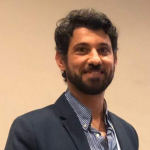
Khalil Bitar
Khalil Bitar is the Chair of EvalYouth Global Network; Founder of the Palestinian Evaluation Association (PEA); and Co-leader of the Eval4Action Campaign. Khalil works as an (internal and external) evaluator and M&E specialist and is currently completing his doctoral degree at the Willy Brandt School of Public Policy in Germany. His research interests include evaluation in countries affected by Fragility, Conflict, and Violence (FCV), national evaluation systems, policy evaluation, evaluation in the MENA region, activism in evaluation, and social justice, equity-focused, and youth participatory evaluation.
E-Mail: Khalil.bitar.hoc@gmail.com
LinkedIn: https://www.linkedin.com/in/khalilbitarhoc/
Twitter: https://twitter.com/KhalilBitar

Linda Morra Imas
Linda Morra Imas is co-founder of the International Program of Development Evaluation Training, IPDET, and served as its co-director and chief instructor for 17 years. She was a Chief Evaluation Officer and Evaluation Capacity Building Adviser for the World Bank Group, working both in its private and public sectors, and a senior director for Education and Employment issues at the U.S. Government Accountability Office. Now an independent consultant, she advises on M&E and provides training worldwide, building on 30+ years of experience. Among other publications, she co-authored the text on development evaluation, The Road to Results: Designing and Conducting Effective Development Evaluations which is now translated into eight languages. Among her awards, she is honorary member of the International Development Evaluation Association, IDEAS. Linda is also known for her work on evaluation competencies and professionalization. She led a large team to develop the IDEAS competencies and code of ethics. In her free time, she likes to work with clay, garden, play with dogs and grandchildren and travel with her husband.

Michael Quinn Patton
Michael Quinn Patton is an independent organizational development and program evaluation consultant, and former president of the American Evaluation Association. He is the founder and director of Utilization-Focused Evaluation. After receiving his doctorate in sociology from the University of Wisconsin–Madison, he spent 18 years on the faculty of the University of Minnesota (1973–1991), including five years as Director of the Minnesota Center for Social Research and ten years with the Minnesota Extension Service. Patton has written many books on the art and science of program evaluation, including Utilization-Focused Evaluation (4th ed., 2008), in which he emphasizes the importance of designing evaluations to ensure their usefulness, rather than simply creating long reports that may never get read or never result in any practical changes. His most recent contribution to the field is Blue Marble Evaluation: premises and principles (2020) which provides a framework for developing, adapting, and evaluating major systems change initiatives involving complex networks of stakeholders, towards a sustainable future across national boundaries, sectors and issues.
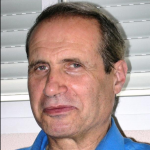
Osvaldo Néstor Feinstein
Osvaldo Néstor Feinstein is a professor at the Universidad Complutense de Madrid’s Master in the Evaluation of Programs and Public Policies and member of the Evaluation Advisory Panel of UNDP’s Independent Evaluation Office. He was manager and advisor at the World Bank independent evaluation department, senior evaluator at the International Fund for Agricultural Development (IFAD) and an evaluation consultant for several international, bilateral and national organizations in Latin America, the Caribbean, North America, Africa, Asia and Europe. Author of several publications on evaluation, development and economics.

Robert Picciotto
Robert Picciotto, Adjunct Professor, University of Auckland, and Senior Independent Evaluation Adviser to the Ministry of Foreign Affairs and Trade in New Zealand, is a member of the UK Academy of Social Sciences. He is a graduate of the Ecole Nationale Supérieure de l’Aéronautique (‘Supaéro’) in France and of the Princeton University School of Public and International Affairs in the United States. He retired from the World Bank after holding several senior management positions, including Projects Department Director in three of the Bank’s Regions, Vice-President, Corporate Planning and Budgeting and Director-General of the Independent Evaluation Group (1992-2002).

Scott G. Chaplowe
International evaluation and strategy specialist
Scott G. Chaplowe is an evaluation and strategy specialist with over 24 years’ experience working with civic, public, and private organizations seeking sustainable solutions for social and environmental challenges. Most recently, Scott worked as the Director of Evidence, Monitoring and Evaluation for the Climate Change portfolio at the Children’s Investment Fund Foundation (CIFF), and previously as the Senior Monitoring and Evaluation (M&E) Advisor with the International Federation of Red Cross and Red Crescent Societies (IFRC). His work has taken him to over 40 countries, engaging with stakeholders ranging from CEOs to refugees. In addition to transformational evaluation, his research interests and experience include complex systems analysis, evaluation capacity development, participatory evaluation and pedagogy, and community resilience. Scott has authored articles, books, guidelines and other resources on evaluation and development, most notably the book, Monitoring and Evaluation Training: A Systematic Approach (Chaplowe & Cousins, 2016, Sage Publications). He has taught at universities in both the United States and abroad (China and Taiwan), and has provided professional development workshops globally for six evaluation associations (VOPES). Scott serves on the American Evaluation Association’s International Working Group as its representative to EVALSDGS, and he is active in several other international evaluation forums, including EvalPartners and Blue Marble Evaluation.

Sonal Zaveri
Sonal Zaveri is India based, with over 30 years’ experience in strategic planning, program design, capacity building, mentoring and evaluation. She has a PhD in Social Work and was a Fleishman Fellow at Duke University, USA. She has worked in more than 25 countries in Asia, East and West Africa, Asia-Pacific, Central Asia, Middle East and Eastern Europe at grassroots, sub-national, national, regional and international levels bringing a broad contextual experience. She has worked with CBOs, NGOs, INGOs, foundations, academic institutions, government, and multilaterals.
Her sectoral experience includes HIV/AIDS, gender, child rights, early childhood development, education, community empowerment, health promotion and prevention, livelihood and disability. Sonal’s interests relate to how rights, participation, transformation and gender are addressed through collaborative, culturally responsive and learning oriented evaluation approaches and methodologies.
She has multiple publications including book chapters, journal articles, monographs and manuals. She is the co-designer and co-facilitator for the first online gender and evaluation course in India and has designed participatory evaluation tools for vulnerable children and youth.
She holds regional and global leadership positions – international advisor to the Child-to-Child Trust, UK; founder and Board Director of Community of Evaluators South Asia; founder and coordinator of GENSA, Gender and Equity Network South Asia; co-chair EvalGender+; board member, EvalPartners Coordination Committee, on the Board of Trustees at IOCE, and core member of the S2SE – South to South Evaluation which addresses asymmetries in global evaluation.
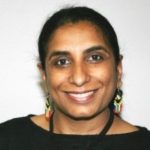
Urmilla Bob
Urmilla Bob is a Full Professor of Geography in the School of Agriculture, Earth and Environmental Sciences and University Dean of Research at the University of KwaZulu-Natal, South Africa. She conducts research on a range of developmental and environmental issues, including socio-economic impact assessments of developmental projects in relation to conservation and tourism projects, sustainable livelihoods in both rural and urban contexts, and consideration of climate change impacts. She has published in these fields in both nationally and internationally recognized academic books and journals as well as produced several reports. She has been involved in collaborative research with national and international academic institutions and organizations. She has training expertise in quantitative and qualitative methodologies and techniques, monitoring and evaluation, development of indicators, social and environmental impact assessments, and gender analytical methodologies. She also has experience in the design and management of research surveys and monitoring and evaluation systems.

Vinod Thomas
Vinod Thomas is Visiting professor at National University of Singapore and Distinguished Fellow in Development Management at the Asian Institute of Management. Previously he was Director General of Independent Evaluation at the Asian Development Bank (2011-2016) and Senior Vice-President of the Independent Evaluation Group at the World Bank Group (2006-2011). At the World bank he was also Country Director for Brazil and Vice-President, and Vice-President of the World Bank Institute. Having joined the World Bank in 1976, he was Chief Economist for the East Asia and Pacific region, Director for the World Development Report, Chief of Trade Policy and Principal Economist for Colombia, and Economist for Bangladesh. Vinod has a PhD in Economics from the University of Chicago and a BA from St. Stephen’s college, Delhi. His 16 books include The Quality of Growth, 2000, Multilateral Banks and the Development Process, (with Xubei Luo), 2012, Climate Change and Natural Disasters, 2017, and (with Namrata Chindarkar) Economic Evaluation of Sustainable Development, 2019. He has taught at Vassar College, New York and the University of Sao Paulo, Brazil, been on several Boards and has addressed numerous fora in all regions. He has been advisor and participant in evaluation at Global Climate Fund, IFAD, Results for Development, IDEAS, and the Emerging Market Forum.
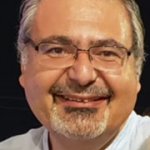
Ziad Moussa
Ziad Moussa is a multi-disciplinary development professional with an intellectual and professional passion for evaluation. Over the past 20 years, he has managed complex multi-country evaluations across the Arab world and the Global South, in well over 40 countries and with almost every major donor on the circuit. He specializes in evaluation in fragile contexts, particularly in conflict/post-conflict settings, as well as local governance systems and processes.
He was the driving force behind establishing the Middle East and North Africa Evaluation Association (EvalMENA) in 2011. He was also elected as President of the International Organization of Cooperation in Evaluation (IOCE) between 2015 and 2017 and Co-Chair of EvalPartners between 2016 and 2018.
Executive Committee

Ian Goldman – President
Ian Goldman has worked for 42 years in 20 countries on rural development, decentralization, sustainable livelihoods, community-driven development, M&E and evidence-based policy-making and implementation. From 2011 to June 2018 he was the Head of Evaluation and Research and later DDG in South Africa’s Department of Planning, Monitoring and Evaluation (DPME), where he led the establishment of South Africa’s national evaluation system. Ian has been a Commissioner of 3ie since 2012, is a founder of the Twende Mbele African M&E Partnership, and since 2020 a Board Member of the South African M&E Association. Ian joined CLEAR Anglophone Africa in July 2018, where he is leading research on use of evidence by African governments, and training in M&E internationally. In addition Ian is an Adjunct Professor at the Nelson Mandela School of Public Governance at the University of Cape Town, a Visiting Professor at the University of Reading in the UK, and an Honorary Research Fellow at South Africa’s Human Sciences Research Council.

Andrealisa Belzer – President elect
Andrealisa Belzer is a Credentialed Evaluator employed with the Atlantic Region of Indigenous Services Canada. She serves as Past President of the Canadian Evaluation Society, and as Treasurer of the International Organization for Cooperation in Evaluation. She also participates in the EvalPartners EvalIndigenous Network, International Evaluation Academy, and on the Global Advisory Council for Blue Marble Evaluation. Andrealisa has practiced health and social services evaluation since 1995, in Canada and internationally. She is committed to evaluative and decolonizing practice that facilitates regenerative systems change for social and ecological wellbeing.

Weronika Felcis – Vice-President
Weronika Felcis is a representative of the EES Board in IOCE where she is Secretary to the IOCE Executive Committee and as such, she is a member of the new Executive Committee of Evalpartners (i.a. member of EvalAgenda2030 Taskforce). Weronika holds an MA in Sociology and is a graduate of Interdisciplinary Studies “Society Environment Technology” at the Jagiellonian University. She was an exchange student at Warwick University in Social Research in 2008/2009 and a scholarship recipient of the Polish-American Freedom Foundation in the Centre for Social Innovation and Research “Shipyard”. She worked in the evaluation field for over a decade – for many years an expert at Jagiellonian University Centre for Evaluation and Public Policy Analysis, subsequently as a freelancer cooperating with all major Polish companies. She is a Fellow of WiseEuropa. In 2014 she joined the Polish Evaluation Society and a few months later became its president. She was a program director of the 1st Polish Evaluation Congress bringing together evaluations from different sectors and fields. For years she has been devoted to building networks and enabling the evaluation environment in Europe, especially in the CEE region. She has been coordinating the Network of Evaluation Societies in Europe (NESE) in 2016-2018.
Realizing the pressures of living in the Anthropocene and 6th Mass extinction era, she introduces the theme of system thinking and regenerative living into her evaluation advocacy and lives in an intentional community based on permaculture principles she co-developed in Latvia.
E-Mail: Weronika.felcis@gmail.com
LinkedIn: https://www.linkedin.com/in/felcis/
Twitter: https://twitter.com/WeronikaFelcis
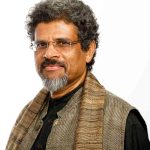
Nanthikesan – Secretary general
Suppriamaniam Nanthikesan is a development practitioner and an evaluator with over 28 years of development experience. He has served in the UN development system as an evaluator for the past 22 years. As the head of corporate-level and thematic evaluations, he has conducted several complex evaluations, assessing the development and organizational effectiveness of international organizations. Recently, he has devoted his energies to assessing the triple crises and decolonizing the evaluation paradigm. He received academic training at Harvard University and Massachusetts Institute of Technology in the US, as well as in Sri Lanka. Before joining the UN development system, he served as a research fellow at Harvard University.

Hur Hassnain – Treasurer
Hur Hassnain is an evaluation specialist. Currently he works at the European Commission DEVCO’s Evaluation Support Service, as Senior Evaluation Advisor based in Brussels, Belgium. Hur is the Founder of Pakistan Evaluation Association and Board Member at the International Development Evaluation Association [IDEAS]. At IDEAS, he co-chairs the Thematic Interest Group (TIG) on Evaluation in Fragility, Conflict and Violence.
Hur has extensive experience of working in a variety of thematic areas including but not limited to gender equality, climate change, renewable energy, agriculture, women’s economic empowerment, education and protection. He has lived and worked in Asia, Middle East and Africa. He has designed, commissioned and conducted research and evaluations for projects funded by the UN agencies, European Commission, private donors and governments of the UK, Canada, Switzerland, Netherlands and Norway.
Hur also enjoys writing poetry and has a collection of Urdu poetry published in 2006.
